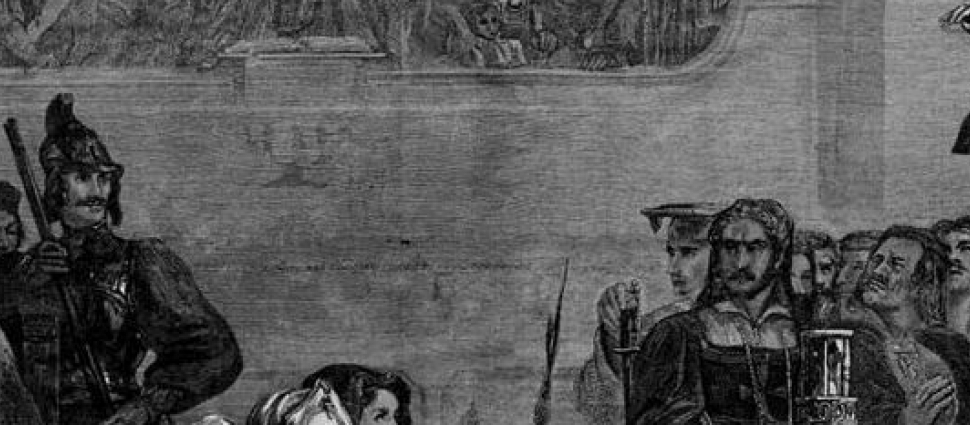John Knox and the Lord’s Supper: Worship In General

Jan 19, 2017
Having briefly surveyed the debates over the Lord’s Supper at the Reformation (part 1), before proceeding to John Knox (1513-1572), it is important to consider the broader place the reform of worship had at the Reformation. The sacraments, of course, are an important part of worship and so, as well as setting Knox’s views in the general context of Reformation debates over the Lord’s Supper, it is worthwhile setting them in the context of his wider views on worship.
The Reformation is often thought of as a reform of doctrine and the Reformation was nothing less than this. But it was also fundamentally about the reform of worship. To give one well known example, here is a statement from John Calvin (1509-1564):
If it be inquired, then, by what things chiefly the Christian religion has a standing existence amongst us, and maintains its truth, it will be found that the following two not only occupy the principal place, but comprehend under them all the other parts, and consequently the whole substance of Christianity: that is, a knowledge, first, of the mode in which God is duly worshipped; and, secondly, of the source from which salvation is to be obtained. When these are kept out of view, though we may glory in the name of Christians, our profession is empty and vain. (“The Necessity of Reforming the Church” in John Calvin: Tracts and Letters, 126)
Calvin here outlines two key points in which “the whole substance of Christianity” is comprehended: first, “the mode in which God is duly worshipped” and, second, “the source from which salvation is to be obtained.” This importance accorded to “worship” and particularly the “mode” of worship is unfamiliar to many of the successors of the Reformation today. And yet, for Calvin, alongside correct doctrine, worship constituted “the whole substance of Christianity.”
John Knox, as is well known, embodied this zeal for the reformation of worship perhaps more than any other of the magisterial reformers. His continual refrain was that “All worshipping, honouring, or service invented by the brain of man in the religion of God, without his own express commandment, is idolatry.” (“A Vindication of the Doctrine that the Mass is Idolatry” in The Works of John Knox, 4:34, 47) He articulated in essence what has become known as the “regulative principle” of worship, noting that “Disobedience to God’s voice is not only when man doth wickedly contrary to the precepts of God, but also when of good zeal, or good intent, as we commonly speak, man doeth anything to the honour or service of God not commanded by the express Word of God.” (Works, 4:37) In summary for Knox, “Man may neither make nor devise a religion [worship] that is acceptable to God, but he is bound to observe and keep the religion [worship] that he has received from God, without any change.” (Works, 1:194)
And this understanding of the strict limits that Scripture placed on the worship of God had profound implications for Knox’s views on the Lord’s Supper. Consistent with his general position on worship he held that “The Sacraments of the New Testament ought to be administered just as they were instituted by Christ and practised by the Apostles. Nothing ought to be added to them or diminished from them.” (Works, 1:194) This leads naturally to consider the question we will begin to consider next time: what did Knox consider to be the apostolic teaching on the Lord’s Supper to which nothing could be added or subtracted?





